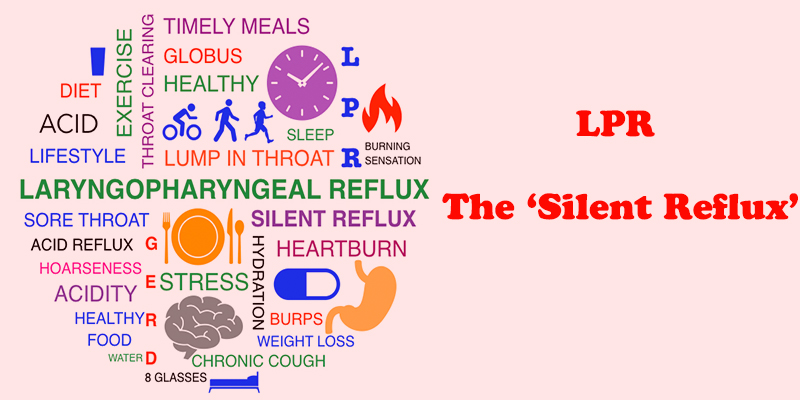LPR (laryngopharyngeal reflux) : The Silent Reflux
What is LPR?
Laryngopharyngeal reflux (LPR) is a condition in which acid that is made in the stomach travels up the oesophagus and gets to the throat. It does not always cause heartburn, but it can cause damage to the throat and vocal cords.
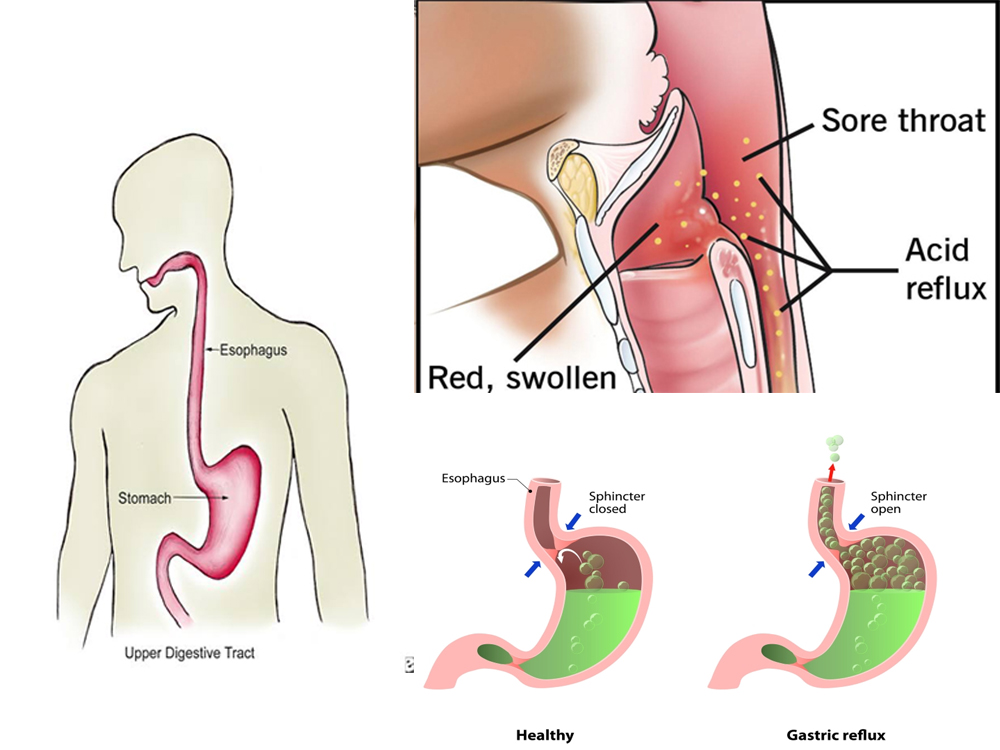
Why does it happen?
• We all have juices in the stomach which are acidic in nature.
• These juices break down food, thus help in digestion.
• At the top of the stomach there is a muscular valve which closes to prevent food and stomach juices escaping upwards into the food-pipe, or the oesophagus.
• If this muscular valve (oesophageal sphincter) does not work very well, the stomach juices can leak backwards into the oesophagus, causing reflux or symptoms of indigestion (heartburn).
• In some people, small amounts of stomach juice can spill even further back into the back of your throat, affecting the throat lining and our voice box (larynx). This is known as laryngo pharyngeal reflux (LPR).
• It is commonly known as ‘silent reflux’ because many people do not experience any of the classic symptoms of heartburn or indigestion.
What is the difference between LPR and GERD?
• GERD, or gastro-oesophageal reflux disease, occurs when stomach acid and enzymes regurgitate into the oesophagus, causing damage to the oesophageal lining and heartburn.
• LPR occurs when stomach acid and/or food enzymes regurgitate all the way back into the lower part of the throat.
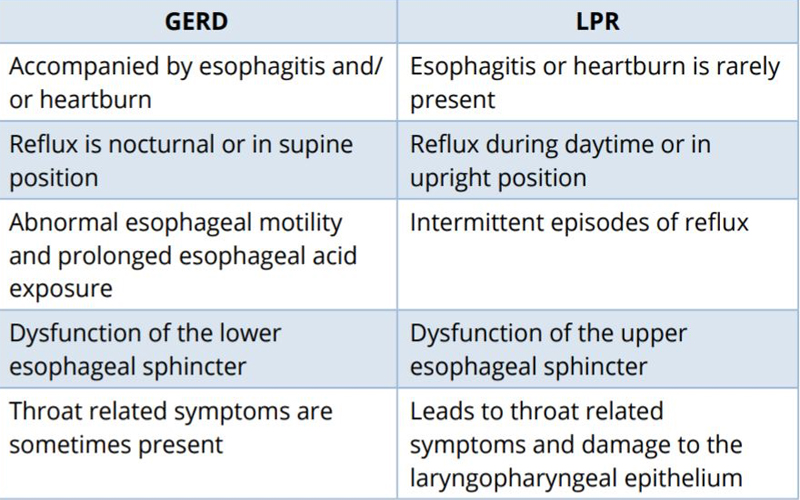
Can LPR be present in the absence of GERD?
• Some people with silent reflux also experience heartburn. Others rarely notice heartburn or never experience it at all .
• This is because the material that comes up does not stay in the oesophagus for long.
• As a result, the contents do not have enough time to irritate the oesophagus and cause heartburn.
• However, if even small amounts of reflux come all the way up into the pharynx and larynx, problems can occur.
• This is because the tissue lining the larynx and pharynx is more sensitive to injury and irritation from stomach juices than the lining of the oesophagus.
What are the symptoms?
• A sensation of food sticking or a feeling of a lump in the throat.
• A hoarse, tight or ‘croaky’ voice.
• Frequent throat clearing.
• A sore, dry and sensitive throat.
• Occasional “acid” or “bilious” taste at the back of the mouth.

• A feeling that too much mucus/phlegm is collecting in the throat.
• Sudden coughing or choking spasms at night.
• Chronic cough.
• Excessive burping, particularly during the day.
What are the risk factors?
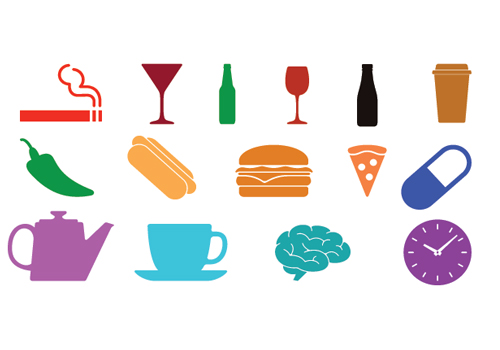
• Tobacco
• Alcohol
• Obesity
• Stress
• Eating close to bedtime
• Eating large meals
• Laying down or exercise immediately after meals
• Carbonated, caffeinated beverages
• Fried, fatty or spicy foods
• Chronic medications like painkillers.
How is LPR diagnosed?
• Clinical history
• Examination of throat and voice box by an endoscope.

• If your symptoms are severe, your doctor may send you for further tests to measure the acid level in your throat and oesophagus
• If necessary, refer you to a gastroenterologist (a doctor specialising in stomach and digestive problems).
How is LPR treated?
• Lifestyle changes:- Most cases of LPR do not need medical care and can be managed with lifestyle changes. They are also the preventive measures.
• Medical treatment:- Medicines are prescribed to reduce stomach acid or to discourage the stomach contents from spilling back.
• Rarely, surgical treatment:- This is reserved for patients with severe silent reflux, who cannot take reflux medicine, or when all conservative measure have failed.
What are the lifestyle modifications needed in LPR?
• Quit smoking
• Avoid fatty, fried and spicy foods.
• Avoid caffeinated and carbonated drinks.
• Maintain strict meal timings.
• Eat smaller meals more regularly.
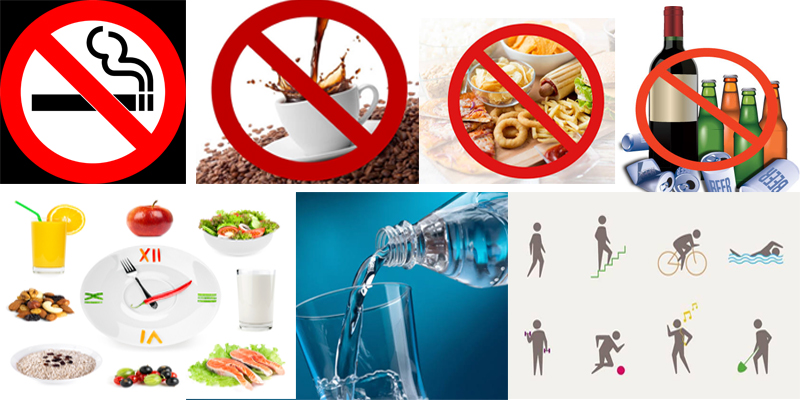
• Leave minimum 2 hours between eating and lying down.
• If you are overweight, try to lose weight.
• Avoid alcohol
• Drink at least 2 litres of fluid a day (not caffeine or alcohol).
How does medicines help in LPR?
• The medical treatments may be prescribed in varying combinations depending upon your symptoms.
• It is important to take the medicines exactly as prescribed for maximum benefit.
• Medicine reduce the stomach acid and prevent them from spilling back.

• Usually a combination of PPIs and antacids is prescribed.
• It is also important to realise that medical treatment can often take time to work, so please be patient.
• Even with the medical treatment, the importance of lifestyle changes cannot be ignored.
How long does it take for LPR to improve?
• Most people with silent reflux report improvement in symptoms after 2-3 months of treatment.
• It may take 6 months or longer for the throat and voice symptoms to improve.
• Patience and regular follow up is the key here.
Do we always need to be on treatment for LPR?
Usually silent reflux improves with the appropriate treatment but you need to:
• Follow the recommendations on lifestyle changes.
• Make the dietary changes that are recommended.
• Take your medication regularly as prescribed by your doctor.
• Any decision to stop treatment should be made with doctor’s knowledge and consent.
What can happen if LPR is not treated?
• Our throat is helps in 3 most important works done by our body: Swallowing/ Breathing/ Talking.
• LPR renders our throat unhealthy, affecting the aforementioned activity and leaving us with unwanted symptoms
• Thus untreated LPR a huge impact on the quality of life and our work output.
• Untreated LPR can lead to chronic sore throat, chronic laryngitis, vocal cord ulcers or granuloma and chest complications.
What is the prognosis/ outlook of LPR?
• The prognosis is very good as most of the times it can be controlled by following a healthy lifestyle.
• Even with the medical treatment, response is usually good.
Are there any other measures that can be taken?
• The head of your bed can be raised about 4-6 inches by placing block under the legs/ base of the bed. By raising your whole chest, gravity reduces the chance of acid travelling up to the throat while you sleep.
• Bend at the knees when you pick things up. If you bend at the waist, this puts pressure on your stomach contents, and leaning over forces acid up towards the throat.
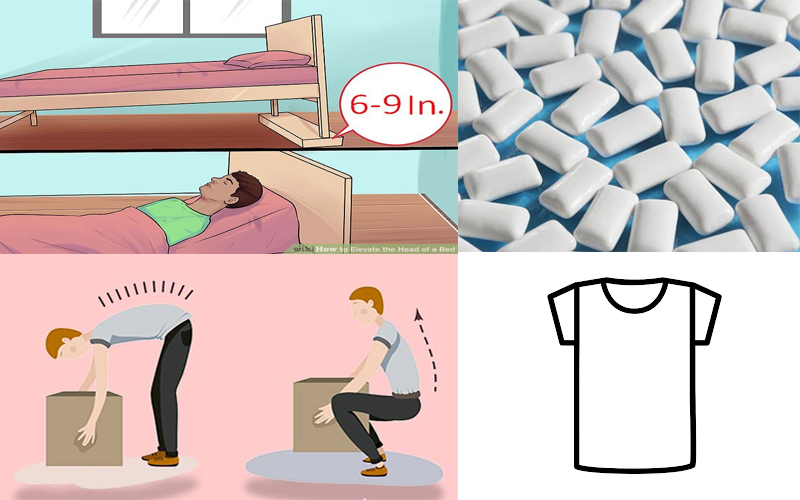
• Wear loose clothing around your waist. Tight clothes put pressure on the stomach contents and can push acid up.
• Avoid shouting, singing, whispering or talking over background noise.
• Chewing gum containing bicarbonate of soda (sold as tooth whitening gum) can be helpful.

